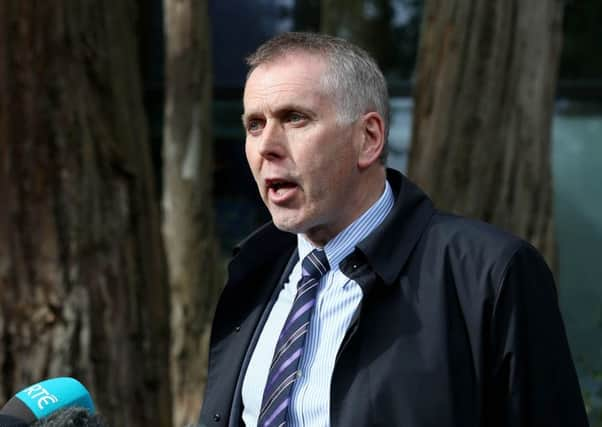Mandarin seems to back direct rule if talks fail


David Sterling revealed that contingency planning is under way for the possibility of Westminster taking charge, although he made clear that it was his strong preference to see local ministers in place rather than power returning to Parliament.
However, when asked if this time “it really is ‘agree a deal and get back into office or we’re going to have to do something else’,” Mr Sterling said bluntly: “We really do look forward to an executive coming back, but if it doesn’t, we do need ministerial intervention.”
Advertisement
Hide AdAdvertisement
Hide AdThe only possible “ministerial intervention” which would be possible in the absence of devolution would be for Westminster ministers to step in, although the form which that may take is not yet entirely clear.
Appearing before Westminster’s Northern Ireland Affairs select committee, Stormont’s top mandarin spoke on several occasions about the possibility of direct rule. Unlike Northern Ireland Secretary Karen Bradley, who has insisted that she is not even considering direct rule, Mr Sterling made clear that her department, the NIO, and his officials were working together on planning for that as a possible outcome.
He said there had been “discussions with the NIO, very much on a contingency basis, to cope with circumstances where the talks might fail - which we hope they won’t - and in those circumstances that the government decided to implement direct rule, how the civil service would respond to that in Northern Ireland”.
Mr Sterling added that there was “a limited amount of contingency planning going on in that regard”.
Advertisement
Hide AdAdvertisement
Hide AdHe said that in the event of direct rule he did not expect to see more civil servants but said that it would require a “reconfiguring of what we have and adapting to what might be necessary if direct rule was introduced”. He later said: “I can’t say there’s a date beyond which we’ll shut down, but - I’ll choose my words carefully - I think it’s unacceptable, the position we find ourselves in, and it doesn’t become any more acceptable with the passage of time. I never thought we could survive this long.”
He said that civil servants are “very concerned about the absence of a budget for next year” and that it would need to be passed by February 8 at Westminster if Stormont is not restored.
Mr Sterling was also forthright about the unenviable situation in which he and his colleagues are now operating. He said: “Without ministers, we’ve no one with a democratic mandate to set new policies. Without a functioning Assembly, we’ve nobody to make laws or immediately hold public bodies to account....inevitably, this means that civil servants, staff in those departments, are in a difficult position.”
Expanding on the conundrum facing officials, he went on: “On the one hand, there’s a very clear - indeed, perfectly valid - expectation by the citizens of Northern Ireland that they will continue to get high quality public services...but on the other hand, our capacity to make progress and to respond to emerging issues is limited.
Advertisement
Hide AdAdvertisement
Hide Ad“Indeed, as time goes by without political structures operating, we’re losing time to tackle some of the very big issues facing Northern Ireland - the need for major transformation across many of our public services,,,all those areas require ministerial decisions, ministerial interventions.
“But we haven’t so far encountered a ‘shut down moment’ - we have been able to keep things going and in large part because the government has put a [direct rule] budget in place for 2017-2018.”
When pressed repeatedly by DUP MP Ian Paisley on why there were delays in the £1 billion from the DUP-Tory deal being spent, Mr Sterling said that work was being done on how to spend the money but “the absence of ministers is handicapping us”.